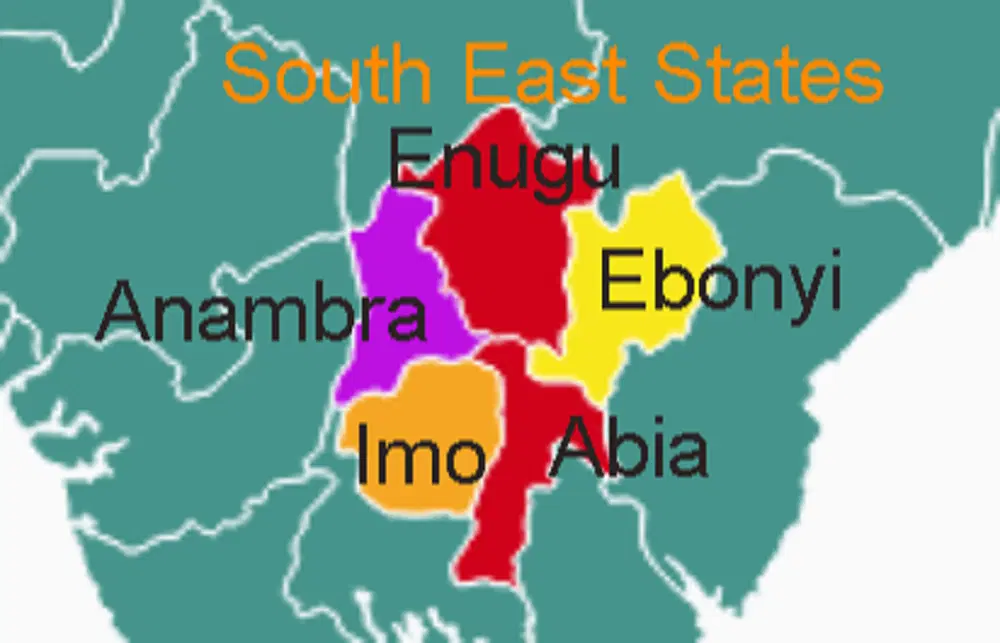Investor confidence in the South-East property market is rebounding after years of muted activity driven by insecurity and economic uncertainty. Data from estate practitioners across the region suggest that land now accounts for more than sixty percent of real estate transactions, supported by stronger security conditions and rising inflows from Nigerians abroad. In several locations, land prices have surged by approximately one hundred percent within twenty-four months.
The renewed optimism coincides with ongoing public infrastructure projects, particularly in Enugu and Abia States, that are enhancing urban-rural connectivity and opening up once-peripheral communities to development. These dynamics have stimulated demand in major urban centres such as Enugu, Umuahia, Owerri, and Awka, as well as secondary markets like Abakaliki.
Estate brokers describe a buoyant market marked by aggressive land acquisition from diaspora buyers, many of whom rely on trusted relatives or networks to secure plots in growth corridors. Several agents likened the pace of purchases to an “instant consumption marketplace,” where well-located plots are acquired almost immediately once available.
Infrastructure as Catalyst
In Enugu, Governor Peter Mbah’s administration has pursued an expansive infrastructure renewal strategy aimed at accelerating internally generated revenue and economic output. The state recently launched a programme to rehabilitate one hundred and forty-one urban roads across thirteen zones, allocating approximately N183 billion to the initiative. The upgrading of markets and transport hubs has strengthened mobility and trade flows within the city, contributing directly to land appreciation across urban, peri-urban, and rural districts.
Local real estate professional Kennedy Chukwuemeka explained that land in the Nike Lake Resort axis that sold for between N8 million and N11 million in 2023/2024 now trades between N20 million and N25 million. He attributed the surge to both diaspora demand and interest from Enugu indigenes living in Lagos and Abuja. Many of these buyers, he noted, are motivated by concerns over demolition risks in the metropolitan areas where they currently reside, prompting a strategic shift to invest “back home.”
Prices are rising even in historically remote areas. In Nsukka, Chukwuemeka reported that parcels purchased for roughly N2 million to N3 million just two to three years ago now command between N7 million and N10 million.
Retired public servant Okechukwu Idoko offered a similar reflection, disclosing that a plot acquired for N2.5 million in 2022 recently sold for N11 million. He described land as “the most reliable investment avenue” for individuals with sufficient capital.
Abia and Imo Experience Parallel Upswing
In Abia State, Governor Alex Otti’s government has launched extensive road and urban renewal projects in Aba and Umuahia, while also attempting to streamline land registration procedures to attract formal real estate investment. These moves are drawing interest from developers and private buyers.
In Imo State, road rehabilitation, including key connections between Owerri and Umuahia, has strengthened access to commercial precincts, boosting both residential demand and land values. Property consultant James Nwokike stated that land in Owerri and neighbouring districts has appreciated by more than eighty percent in two years. According to him, supply constraints now present a challenge. “Most available plots are in the secondary market, and owners rarely rush to sell even when offered substantial gains,” he said.
Outlook: Security and Policy Remain Critical
Estate surveyor and valuer Hyginus Diyoke attributed the resurgence to improved security and deliberate state-led economic stimulus. He argued that the restoration of public safety has revived investor sentiment, prompting governments to allocate resources toward infrastructure that directly supports property development. Diyoke emphasised that sustained security remains fundamental to maintaining investor interest and stabilising the market trajectory.
Conclusion
The Southeast’s property sector, long constrained by insecurity and capital flight, is experiencing a marked revival as peace returns and infrastructure expands. Diaspora participation, enhanced confidence, and strategic state interventions are reshaping market dynamics, positioning the region for continued real estate growth if security remains stable and reforms deepen.




